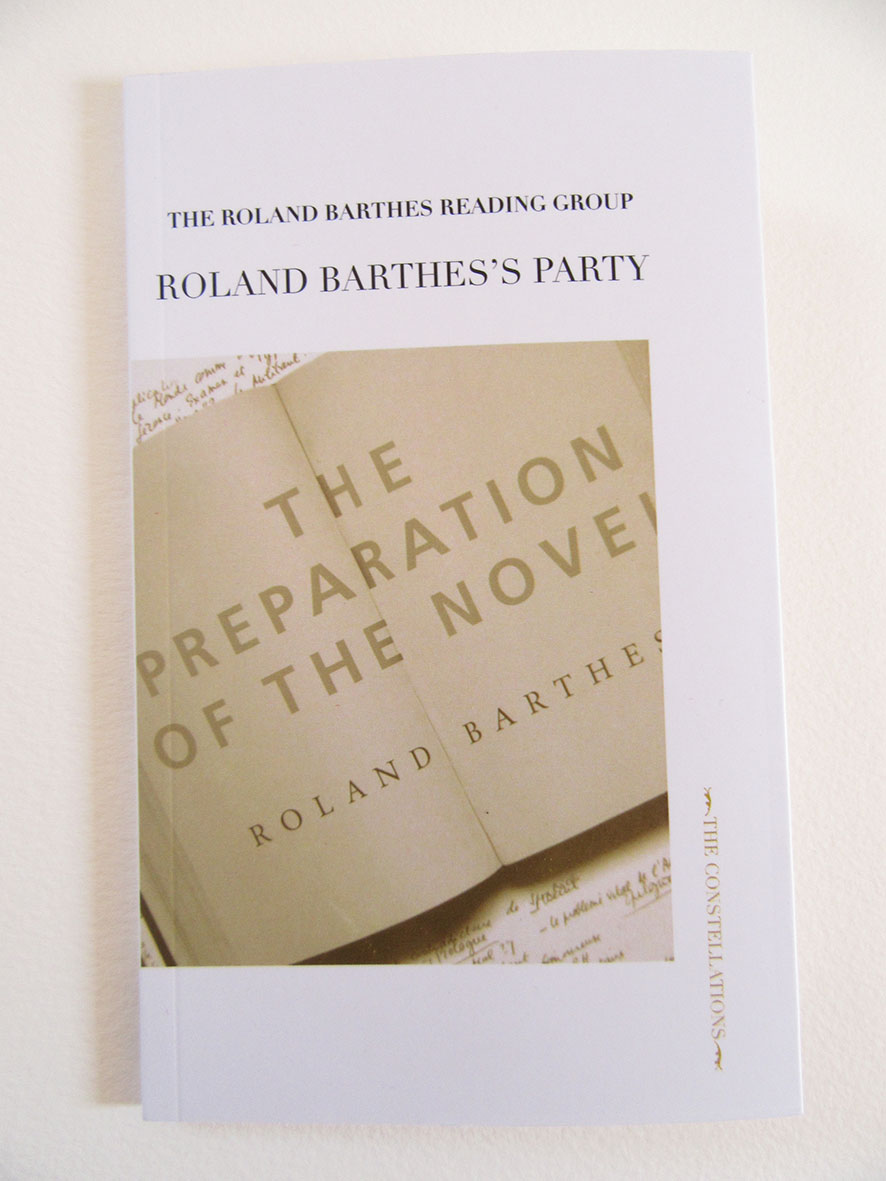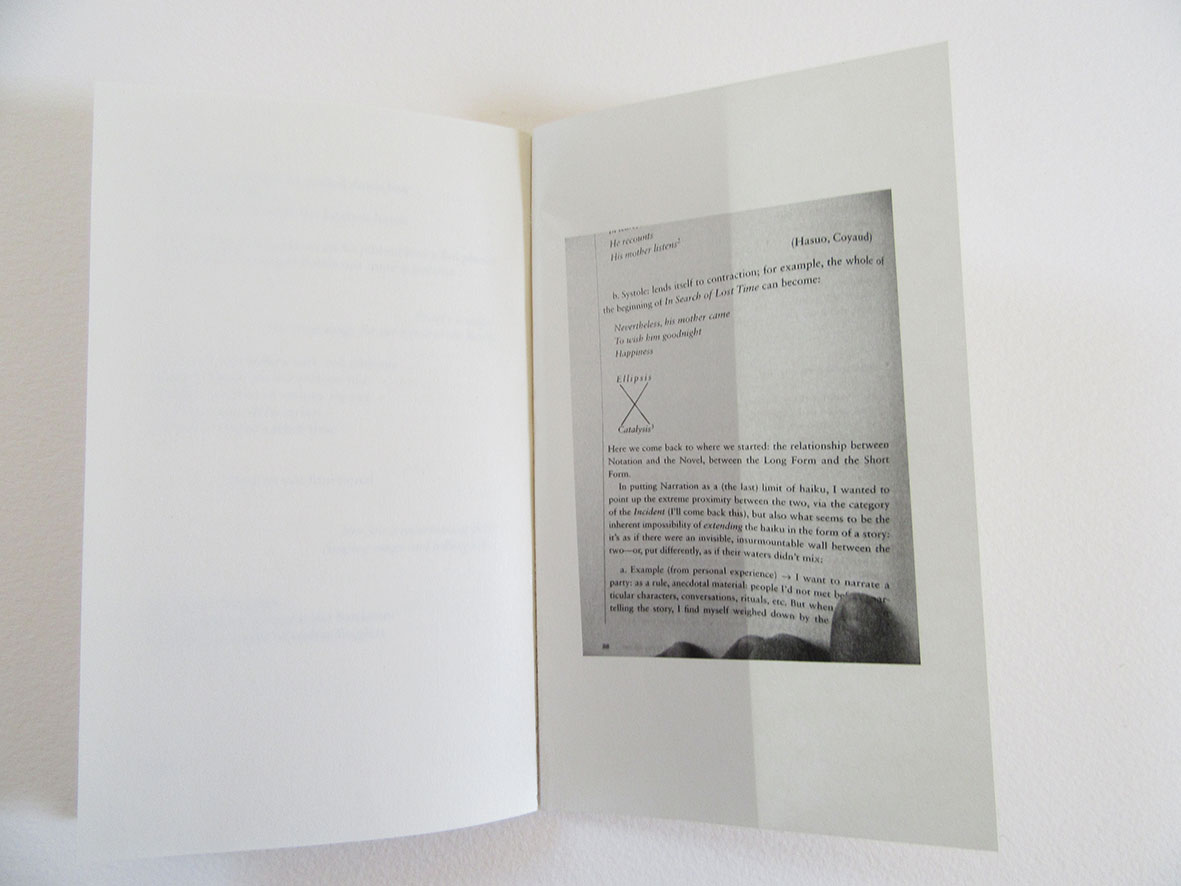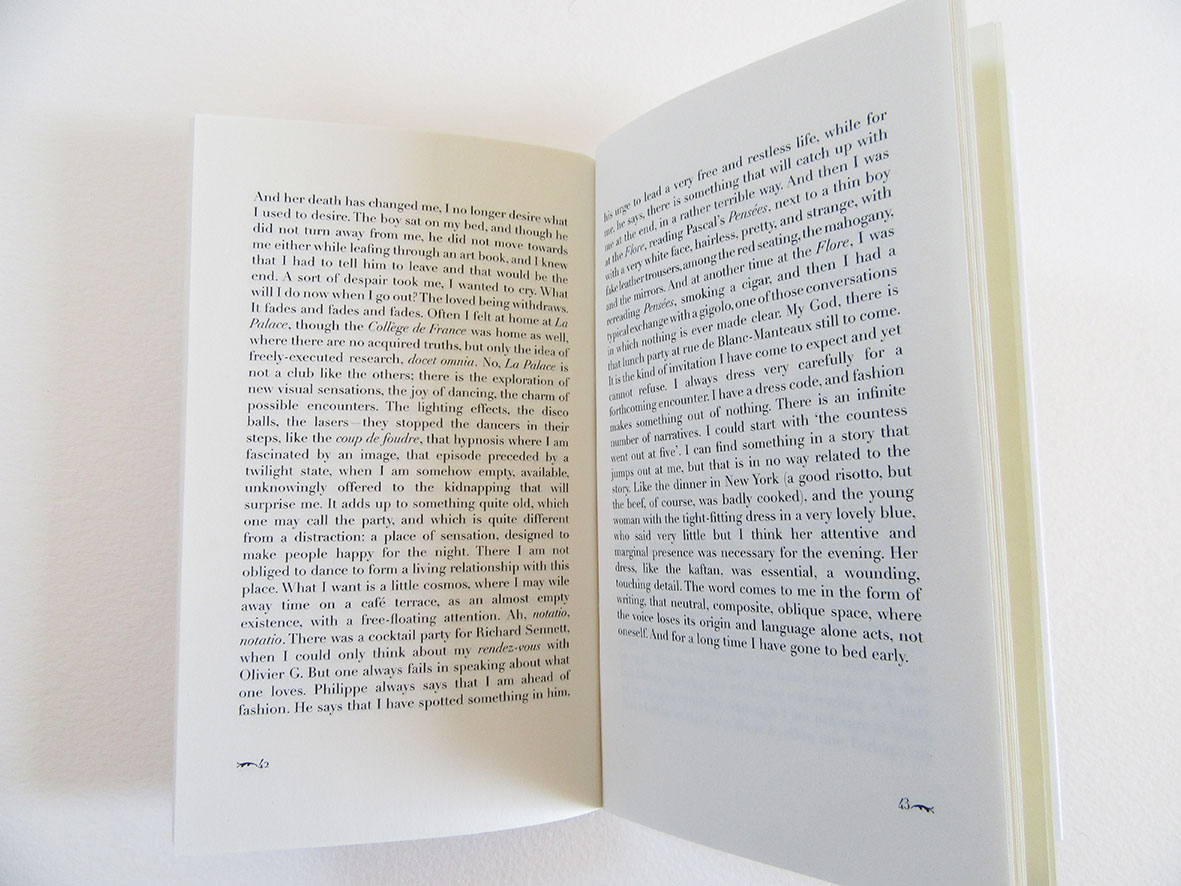The Roland Barthes Reading Group
ROLAND BARTHES'S PARTY




a. Example (from personal experience) –> I want to narrate a party: as a rule, anecdotal material: people I’d not met before, particular characters, conversations, rituals, etc. But when I set about telling the story, I find myself weighed down by the ‘necessary’ details (necessary for the logic of the narrative) that I personally find it too tiresome to recount. I only need ‘retain’ two notations from the party: the yellow dress worn by the hostess (a kaftan) and the sleepiness of the host’s eyes, the droopiness of his eyelids, sorts of realistic haiku that exhaust the saying and don’t belong to narrative discourse (at least not my practice of it) because they’re: not functional.
b. Conversely, I can find something in a story that jumps out at me, like a film jumping, a sliver flying off, something that has all the spirit of haiku but is in fact no way related to the story: something that sets a bell ringing, that brings with it all the particular features of haiku I’ve tried to articulate [...]
The Short Form is its own necessity and suffices in itself: it can’t be stretched.
Roland Barthes, Session of March 3, 1979
‘If the Roland Barthes Reading Group were a church,
I would be a member of its congregation.’
–> Anne Boyer
The Roland Barthes Reading Group is Emma Bolland, Julia Calver, Daniela Cascella, Helen Clarke, Louise Finney, Susannah Gent, Sharon Kivland, Debbie Michaels, Hestia Peppé, Rachel Smith.
For four years we have been reading The Preparation of the Novel by Roland Barthes, the collection of the series of lectures he gave at the Collège de France between 1978 and 1980, completed shortly before his death in 1981. He declared his intention to write a novel, and in this pedagogical experiment, explores the trial of novel writing.
b. Conversely, I can find something in a story that jumps out at me, like a film jumping, a sliver flying off, something that has all the spirit of haiku but is in fact no way related to the story: something that sets a bell ringing, that brings with it all the particular features of haiku I’ve tried to articulate [...]
The Short Form is its own necessity and suffices in itself: it can’t be stretched.
Roland Barthes, Session of March 3, 1979
‘If the Roland Barthes Reading Group were a church,
I would be a member of its congregation.’
–> Anne Boyer
The Roland Barthes Reading Group is Emma Bolland, Julia Calver, Daniela Cascella, Helen Clarke, Louise Finney, Susannah Gent, Sharon Kivland, Debbie Michaels, Hestia Peppé, Rachel Smith.
For four years we have been reading The Preparation of the Novel by Roland Barthes, the collection of the series of lectures he gave at the Collège de France between 1978 and 1980, completed shortly before his death in 1981. He declared his intention to write a novel, and in this pedagogical experiment, explores the trial of novel writing.
60 pages
170 mm x 105 mm
60 mm French flaps (cover)
Format: Paperback
ISBN 978-1-910055-74-8
£8
Next Book ->
170 mm x 105 mm
60 mm French flaps (cover)
Format: Paperback
ISBN 978-1-910055-74-8
£8
Next Book ->